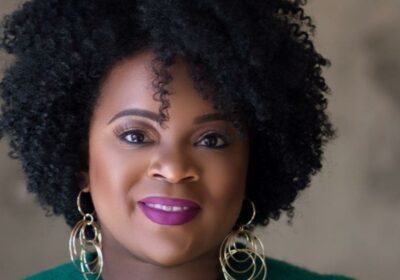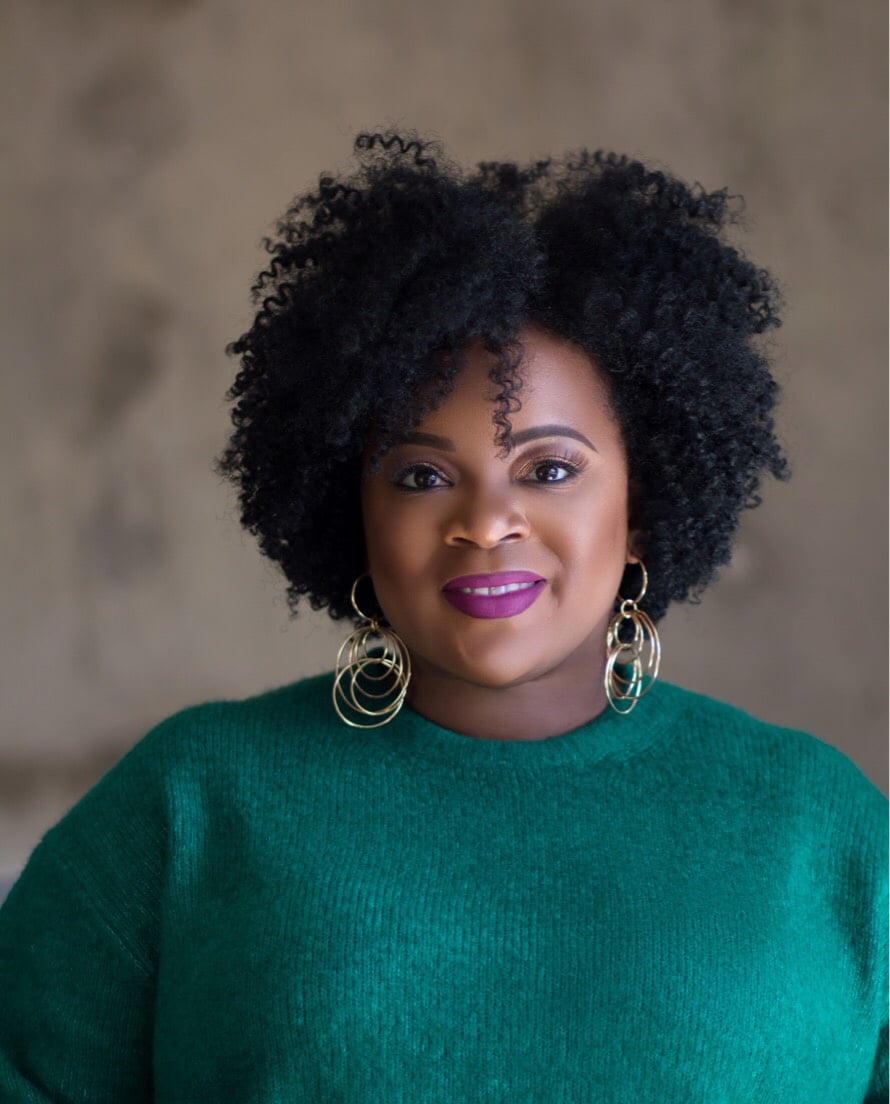Adwoa Beauty Founder Hopes to Inspire You to Demand Respect


Too often, the best beauty stories go Untold, solely based on a person’s skin color, religion, gender expression, disability, or socioeconomic status. Here, we’re passing the mic to some of the most ambitious and talented voices in the industry, so they can share, in their own words, the remarkable story of how they came to be — and how they’re using beauty to change the world for the better. Up next: Julian Addo, founder of Adwoa Beauty.
Beauty has always been my entire life. I grew up in Staten Island, NY, and I came to this country when I was 2 years old as I was actually born in West Africa, Liberia. Beauty was all around me growing up in the inner cities of New York. Having grown up during the ’90s, that was the era for fashion and for hair. This was perfect because my first experience in this space was actually from me wanting to make money. I didn’t have a green card at the time to get a traditional job in fast food like my friends were doing after school. So circumstantially, through a friend I started doing hair. She was a . . . we call it “kitchen beautician,” so she did hair out of her house. I would go over, and first I’d just watch. But after a while, when she got very busy, I would help her.
After a while, I just picked up on certain hairstyles that were popular back then. Then I realized I was good at what I was doing — at replicating what I saw. So I started to do hair to make money, too. I ended up enrolling in a vocational school called Ralph McKee Vocational Technical High School to study cosmetology so that I could do hair full time. While I enjoyed what I was doing, my reason for going to the school was more practical. Since I didn’t have a green card, I wasn’t sure if I would be able to get financial aid for college, and I didn’t really know what was going to happen after high school. From 14 to 17, while I went to high school, I also worked. And then when I was 17, I graduated with my New York State cosmetology license. One year later, I relocated to Minnesota where I opened my own salon in 2000. So beauty and, more specifically, hair truly have always been a part of my life.
Working in the salon I think really saved me and my self-esteem as a Black woman. I know a lot of Black women in beauty. The long-standing gripe has been that we often didn’t see ourselves in the same industry we were working in. But in the salon, I didn’t look for myself in Vogue or Harper’s Bazaar. Instead, we had Word Up Magazine and Hype Hair. We had so many hair magazines in the salon and at the beauty supply store, so I always saw myself represented in the spaces around me.
Growing up doing hair, I didn’t even know that I was an entrepreneur back then. I wasn’t thinking about business in the way that I am now with Adwoa Beauty. I didn’t have those words. I was just doing what I loved. But in the salon, you’re essentially an independent contractor. So even though I didn’t pay the bills for the entire space when I was in high school, I rented a chair and paid every week. I managed my inventory. I managed my schedule. So when it came to my entrepreneurship journey with Adwoa Beauty, it wasn’t much different. Of course, my bills did get a little bigger in the brick-and-mortar space, but I think from an early age, working in the salon helped me to learn discipline. In high school, when my friends were probably chasing boys or going to the movies after school, I was rushing from the bus stop to go and do my client’s hair at 3:30. That experience made me extremely disciplined very early on, and I was able to carry that discipline with me when I opened my own salon.
When we moved to Minnesota, it took me eight months to open my own salon. I opened a makeshift one in my mom’s basement, and in the meantime, I saved up to have the real brick and mortar. A lot of people also knew my name from New York, so I leveraged that, and it didn’t take me a long time to rebuild my clientele. This word of mouth coupled with the way I carried myself — always extremely professional — was my value proposition back then. Word got around, and it just worked out.
In 2002, I detoured into banking, circumstantially. I needed health insurance. However, because of those skill sets and that discipline that I honed from working in the salon for all those years, I was just able to really come in and just outshine. I found the work extremely easy. In the salon, I’m going in at eight o’clock in the morning. And I’m standing on my feet all day — sometimes 12, 13 hours later. When I got into corporate America, I was sitting in a chair with a headset on my head and answering calls. It was like taking candy from a baby. I accelerated really fast in that field. Within a year, year and a half, I was already in management. Working in that field granted me so many perks, but most importantly it allowed me to develop leadership skills.
With the rise of the natural-hair movement, the experts became these young girls who just used products on their own heads in their bedrooms. But consumers were making buying decisions based off what they were seeing. Then I realized that a lot of the things some of these influencers were saying were not correct. Because of this I saw a wide space for getting into the industry from a professional standpoint and bridging that gap. So I did just that with my Bella Kinks Expo events. I started having events in Dallas. And then they eventually became huge. So much so that my brand and my name became synonymous in the industry with high-quality events. Eventually, I got a call from Sally Beauty to do freelance digital work for their in-house multicultural brand, Silk Elements, and I also helped them to launch Texture ID. I also had some additional Black-owned clients like Curls and other brands.
Through that experience we were in an era where we were seeing everything old being launched to become new again. Brands like Glossier, Warby Parker, and Casper were all household brands that were becoming modernized for the digital era. But I didn’t see that happening within the hair space — more specifically, the textured-hair space. I felt like the industry was still so antiquated. Everything from the art to the packaging and even the way it was being marketed. So I wanted to modernize textured–hair care. This is how Adwoa Beauty was born. I wanted to see a prestige, textured-hair-care brand that catered to multicultural people.
https://www.instagram.com/p/Cf1ZGtquewp/
Before I came up with the name Adwoa Beauty, I knew I wanted a real, transparent, and authentic way to enjoy the brand, so I had to really pull from my experiences. Everything about the brand, from the brand’s color to the name, is just me. Adwoa is my name in my culture. In the Akan tribe, which spans from Ghana to Ivory Coast, they name the children after the day of the week that they were born. So “Adwoa” means “female born on a Monday.” When I was building Adwoa Beauty, I wanted to merge the intersection of my identity. I wanted a naming convention that connected all of us in Africa, here in the diaspora, and in the Caribbean in a real symbolic way. So since Ghana is the one country in Africa that connects all of our people, the name just made sense to me.
Everything from the name to even the packaging is intentional when it comes to Adwoa Beauty. Our packaging is extremely clean and modern. There’s not a lot going on. For me, this symbolizes the modernization of multicultural and Black people. The intentionality behind the brand has opened up so much dialogue. If people don’t know what the brand name means, or even how to pronounce it, they ask. And now, there are Google searches out there for Adwoa, all because of the thought behind the brand. I want people to use their names. And make people pronounce it correctly. The name Adwoa just gives permission for others to know that they need to be respectful of other cultures and honor their given names. And I’m really proud of that.
With the brand, I’m definitely looking towards the future. We have so many exciting things happening. My biggest hope is for us to instill hope in other Black-women business owners. I want to show that if I did it, you can, too. It’s why my journey has been so transparent and will continue to be so. As for the beauty industry as a whole, there have been some really great strides made, but I think there’s still so much work to do. What I’m most looking forward to is the democratization of beauty. I’m looking forward to seeing diversity trickle internally to the top positions in some of these organizations. I want to see more diverse senior leadership and merchant teams. The diversity can’t just be on the shelf. It needs to be internal as well. I think the world is becoming more colorful and more exciting, so I’d like to see more funding and financial opportunities for BIPOC brands and owners. That investment is where the true work lies.
Source: Read Full Article